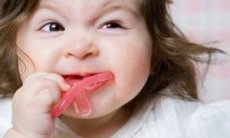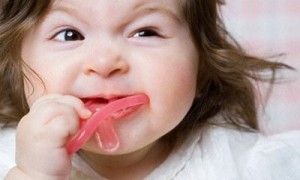
All iLive content is medically reviewed or fact checked to ensure as much factual accuracy as possible.
We have strict sourcing guidelines and only link to reputable media sites, academic research institutions and, whenever possible, medically peer reviewed studies. Note that the numbers in parentheses ([1], [2], etc.) are clickable links to these studies.
If you feel that any of our content is inaccurate, out-of-date, or otherwise questionable, please select it and press Ctrl + Enter.
How to wean a child from the pacifier?
Medical expert of the article
Last reviewed: 04.07.2025

Once your toddler throws his first tantrum in the supermarket because his favorite pacifier is left at home, you'll probably want to wean him off the pacifier for good. But how do you do that? How do you wean your baby off the pacifier?

When is it worth weaning a child off a pacifier?
Although doctors do not give a specific age when a child should be weaned off the pacifier, many recommendations say that a good age to begin implementing this goal is around 18 months, but there are also recommendations for a year and a half. When we say "beginning," we mean a gradual process of weaning off the pacifier. Although some parents act in drastic ways, we still recommend a more gradual approach. It will bring much less stress to the child.
Why is it necessary to wean a child off a pacifier?
Possible side effects of long-term pacifier use include the following.
Teeth displacement
Depending on how long your baby sucks on a pacifier, he may develop deformations in the upper jaw, which can lead to displacement of the upper teeth.
Delayed speech development
With a pacifier in the mouth, the child has much less opportunity to "talk" and experiment with sound. Lack of practice in speaking can lead to a slowdown in speech development.
Development of ear infections
Pediatricians say that using a pacifier increases the incidence of ear infections by 50%.
How to wean your child off a pacifier?
Start gradually
Start giving your baby a pacifier every time to calm your baby down before bed. Tell your baby that the pacifier will now be for peaceful sleep only. Gradually, your baby will get used to the fact that the pacifier is only needed at night. Eventually, he will refuse this too. Your baby may get used to falling asleep with a pacifier within a few days, so that he does not need it during the day.
Replace the pacifier with something else
If your baby doesn't want to give up the pacifier, replace it with another object - for example, an interesting toy or a rubber ring that the baby can chew on. At night, give the baby a toy instead of a pacifier for greater comfort.
Reward your child for refusing a pacifier
Give the child something else as a reward for throwing away the pacifier. It can be something the child likes. For example, a tasty candy or juice or a funny doll. This will be a reward for firmness of character. Encourage the child emotionally: hug him, kiss him and say: "What a great boy you are, I love you."
Be consistent
Don't give in to your baby's tantrums before bedtime or his crying. If you eventually give in and give him a pacifier, the child will be confused and will not understand: can he suck on a pacifier or not? Therefore, be firm in your actions: having banned a pacifier once, do not change your requirements.
Apply these tips
If you decide that your baby still needs his favorite pacifier for a few more months, use the following precautions:
First of all, always try to comfort your child in other ways.
- Do not dip the pacifier in honey or any sweet substance that may harm the teeth.
- Allow your baby to use a pacifier for short periods of time, and only when you feel he especially needs it.
- Gradually reduce the frequency and duration of pacifier use.
- Rest assured that, either now or later, your baby will outgrow the need for a pacifier.
How to wean a child off a pacifier - parents have probably already understood. It is not necessary to apply all the recommendations at once. There is always an option that will suit you.


 [
[